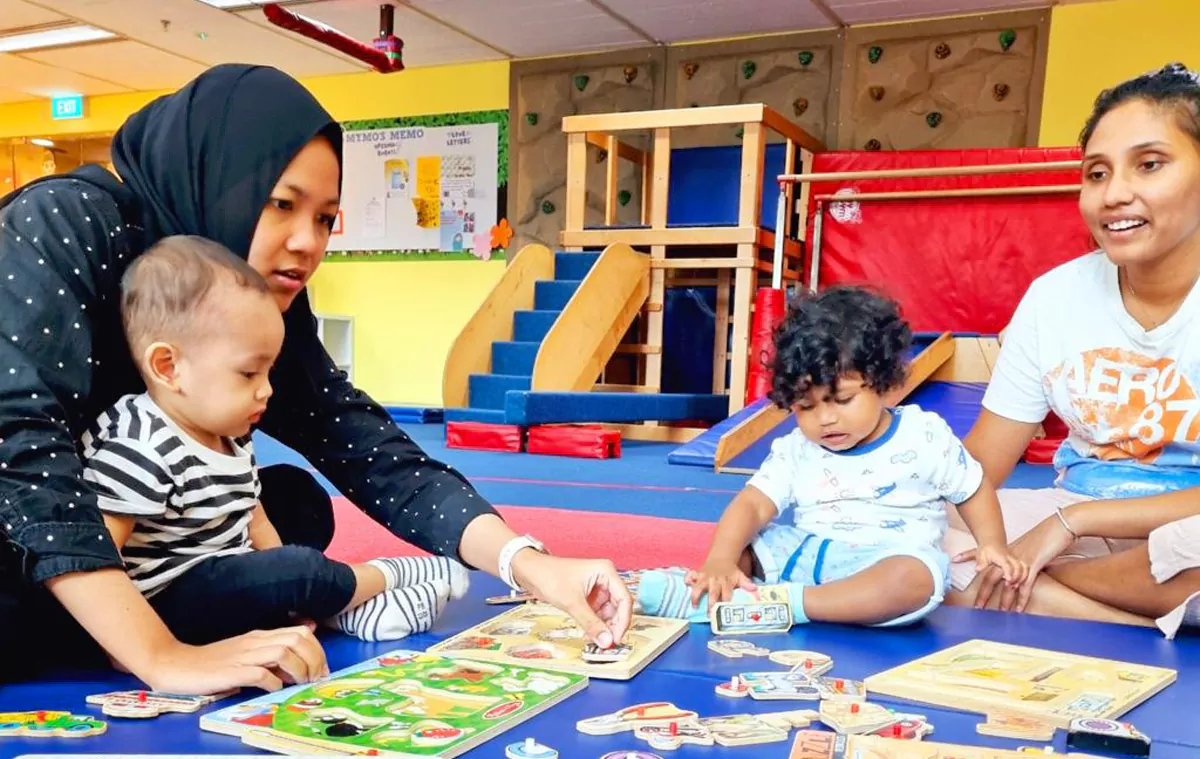Fast-tracking development of social skills in toddlers
The efforts to develop social skills in children need to begin as early as possible. Social skills are an essential aspect of your child’s overall growth and well-being. Acquiring these skills empowers your child to engage in positive interactions with others and effectively express her desires, needs and emotions.
For instance, it’s important to teach your child how to manage and express her emotions in a healthy way, listen actively, show empathy, and respect others’ boundaries. It’s also essential to teach your child how to handle rejection, criticism, and conflicts in a constructive manner.
Teachable moments are ideal times to introduce new ways to improve social skills and social development activities for toddlers. For example, when your child disagrees with a decision made by you create an opportunity to add to your toddler’s communication skills. Use this moment to teach her how to express her opinion in a respectful and appropriate manner.
Play is the most enjoyable aspect of childhood and promotes physical activity, well-being, and happiness. It is also among the most effective and efficient ways for a child to acquire and apply the social skills she learns. A child who possesses well-honed social skills will experience immediate and tangible benefits in various aspects of her life.
Unlocking the power of social skills
Through the acquisition of social skills, children can reduce the stress levels that surges during tense moments. Social skills have the power to transform a child’s world. It’s never too early to commence the journey of cultivating harmonious relationships, nor is it ever too late to sharpen these skills. Remember, this is a voyage of discovery and every step counts.
As your child participates in developing her social skills through group play, she learns the art of collaboration, negotiation, and compromise. She will practice effective communication and empathy, gaining a deeper understanding of the perspectives and emotions of others. Through shared play experiences, friendships are forged, and social bonds are strengthened, laying the groundwork for fulfilling relationships in her personal and professional life.
Play fosters independence by encouraging your child to explore her surroundings, take risks, and make decisions for herself. Play empowers your child to assert her autonomy, and this sense of independence will nurture and drive a thirst for knowledge, allowing your child to become a lifelong learner who is unafraid to venture into uncharted waters.
Play will equip your child with invaluable skills for navigating challenging situations. When she begins to encounter obstacles and setbacks while at play, your child will develop adaptive strategies for problem-solving and resilience.
Play provides a safe space where your child can experiment with different approaches and learn from others and from her mistakes without fear of judgment or failure. This capability to cope with adversity and self-help fosters emotional intelligence and fortifies her ability to face and overcome obstacles.
Through your child’s journey of self-discovery, social growth, and cognitive development, your child will begin to acquire social skills such as confidence, self-esteem, resilience, social interaction, independence, curiosity, and adaptability, forming a strong foundation for success and be able to thrive in an ever-changing world.
Why free play is important
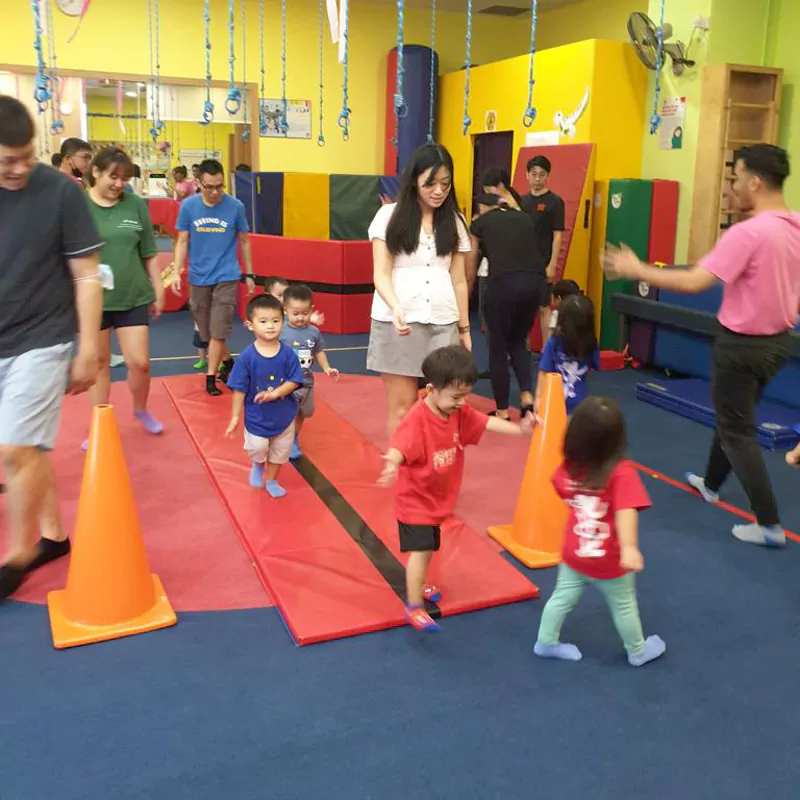
The significance of play cannot be overstated, as it serves as a powerful catalyst for promoting social skills and enhancing the overall development. Engaging in play not only brings joy and entertainment, but also unlocks a multitude of cognitive, physical, social, and emotional benefits.
To begin with, play acts as an immersive educational experience, allowing your child to explore and comprehend the intricacies of the world around her. As she embarks on imaginative adventures and constructs make-believe scenarios, she begins to acquire knowledge, problem-solving abilities, and critical thinking skills.
Through play, your child becomes adept at navigating challenges, discovering innovative solutions, and developing a profound understanding of cause and effect. By actively engaging with her surroundings, your child will build a solid foundation for future academic pursuits and participate actively in her vocational interests.
Play also serves as a profound self-discovery tool, enabling your child to gain insight into her own identity and capabilities. As she engages in various forms of play, she will gain confidence and nurture a positive sense of self-esteem. This newfound belief in her abilities empowers your child to take on new challenges with enthusiasm and resilience.
By embracing the playful spirit, your child can develop a resilient mindset, understanding that setbacks are simply opportunities for growth and learning.
Growth through play
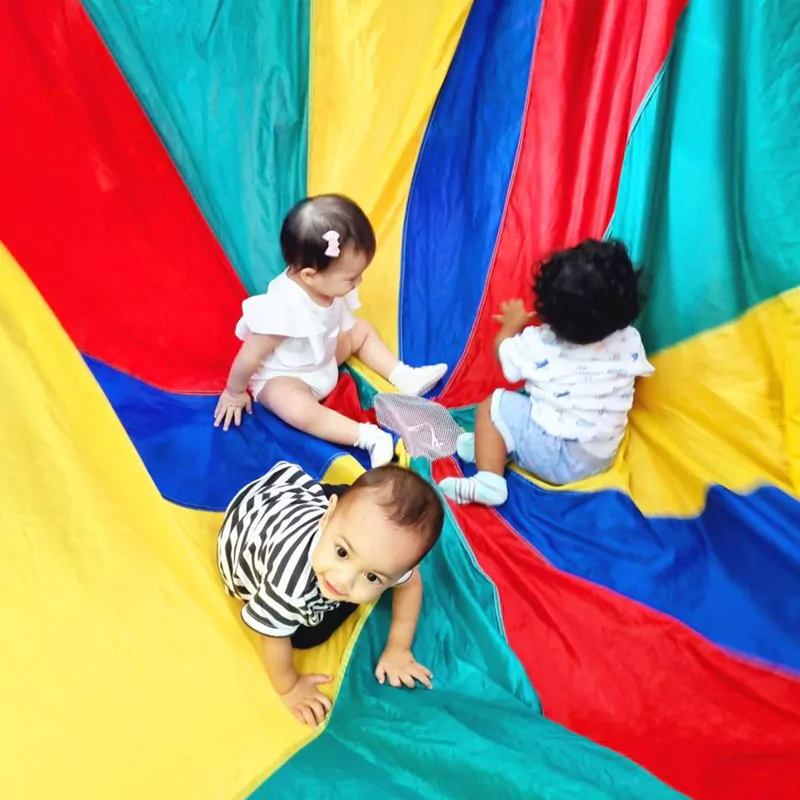
Through the freedom of selecting her own play activities, your child gets to foster optimal physical and mental health, as well as acquire valuable life skills. It is crucial for your child to have access to a diverse range of unstructured play opportunities from infancy to adolescence.
Opportunities can range from free play in natural environments, and imaginative play with toys, to social interactions in organized sports or games. By offering a variety of play experiences, you provide your child with the tools she needs. Whether it’s building with blocks, pretending to be a character in a story, or engaging in a game with friends, your child learns best when she is intrinsically motivated and has the autonomy to explore and express herself through play.
Play serves as a natural avenue to channel your child’s energy and stimulate her body. Actively engage in running, jumping, and climbing, which contributes to her overall health and vitality. Furthermore, play encourages your child to explore and experiment, nurture curiosity and create a sense of adventure that further enhances her physical capabilities.
In addition to the physical benefits, play provides an outlet for self-expression, imagination, and creativity, allowing your child to process her emotions and thoughts in a safe and enjoyable manner. Through play, your child develops resilience, problem-solving skills, and the ability to regulate emotions, which are essential life skills for navigating challenges and building healthy relationships.
Play helps deal with stress
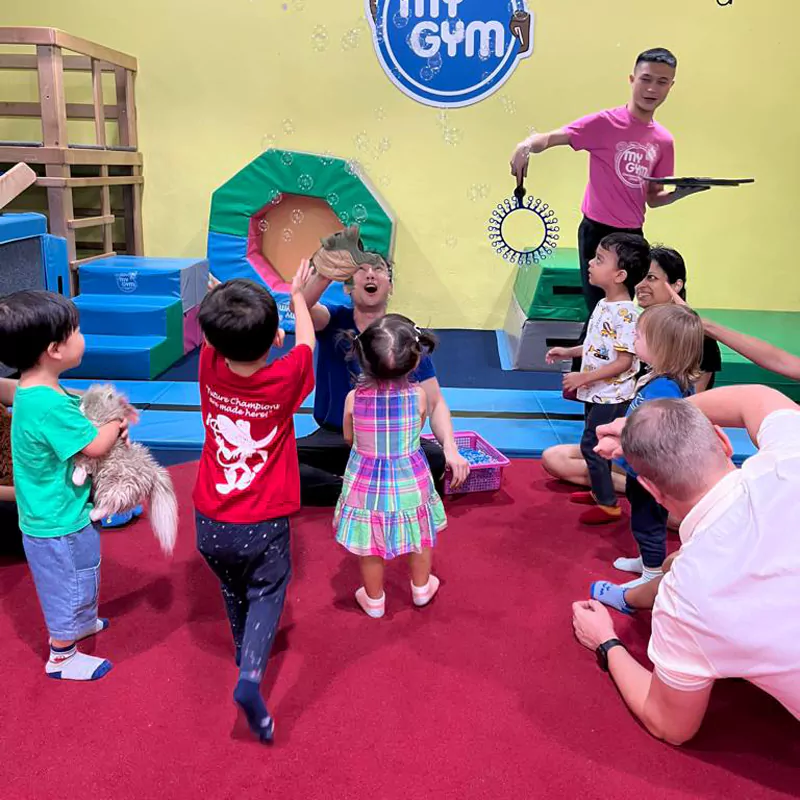
Absence of social skills can intensify stress, particularly for children who are away from their families. The inability to communicate effectively with others can worsen this stress. Researchers have found that teaching children social skills can lead to a decrease in the harmful stress hormone called cortisol.
The good news is that social skills can be taught at any age. It is essential to start early and continue to evelopp these skills over time. Cooperation and collaboration are crucial aspects of social skills. Some children may naturally take on leadership roles, while others prefer to follow instructions. Both approaches offer valuable opportunities for children to understand themselves better and discover their preferred roles in a group setting.
Play can create family activities that require cooperation, like preparing opportunities for group games that emphasize the value of collaboration and teamwork. It also demonstrates how playing together enhances outcomes.
Learning to respect personal space
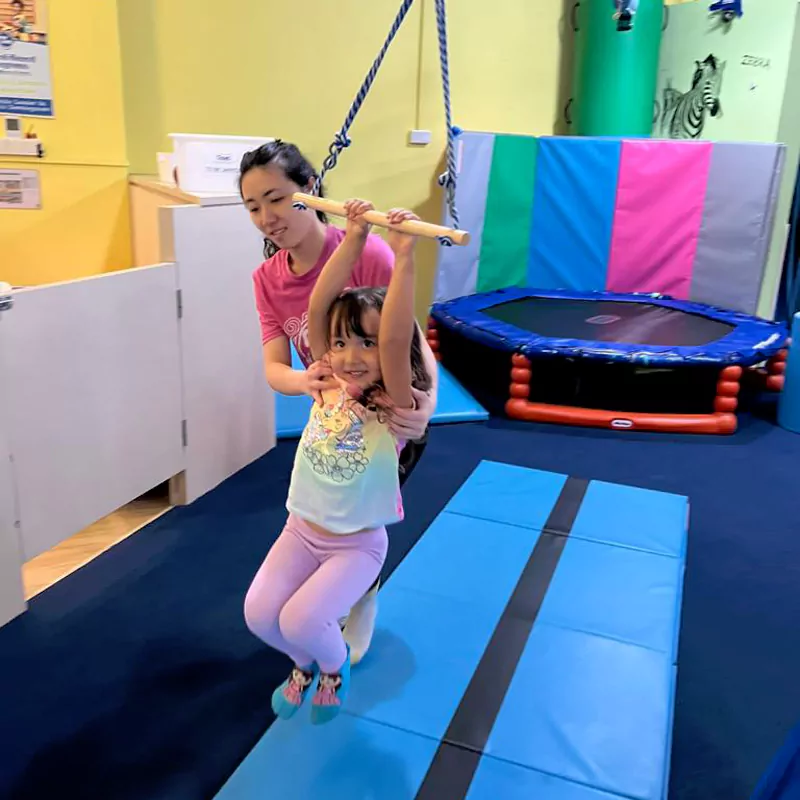
Personal space is a fundamental aspect of social skills that involves understanding and respecting the physical boundaries of others. It is important for young children to grasp the concept that each individual has a personal space bubble that should be acknowledged and honoured.
To help children comprehend personal space, it is crucial to explain that it can vary from person to person and from culture to culture. Children should understand that people they are close to, such as relatives and siblings, maybe more open to hugging and physical contact compared to strangers. Additionally, it is important to emphasize that individuals from different cultures may have different preferences regarding personal space, either desiring more or less space.
Another aspect to educate children about is reading body language. They should learn that when people tense up, cross their arms, or back away, it is an indication that their personal space is being invaded. By recognizing these signs, children can adjust their behaviour accordingly and respect others’ boundaries.
It is essential to inform children that they are entitled to their own personal space. They should understand that no one should pick them up or hug them without their permission. By empowering children with the knowledge that they have authority over their own bodies, they begin to develop a sense of autonomy and self-respect.
In addition to understanding their own personal space, children should also be taught to extend the same courtesy to others. Encourage them to ask for permission before hugging someone, sitting on someone’s lap, or engaging in other physical interactions. This practice fosters mutual respect and consideration for the personal boundaries of others.
By elaborating on these principles and providing clear explanations, children can develop a greater understanding of personal space and how to navigate social interactions with respect and empathy.
The art of sharing
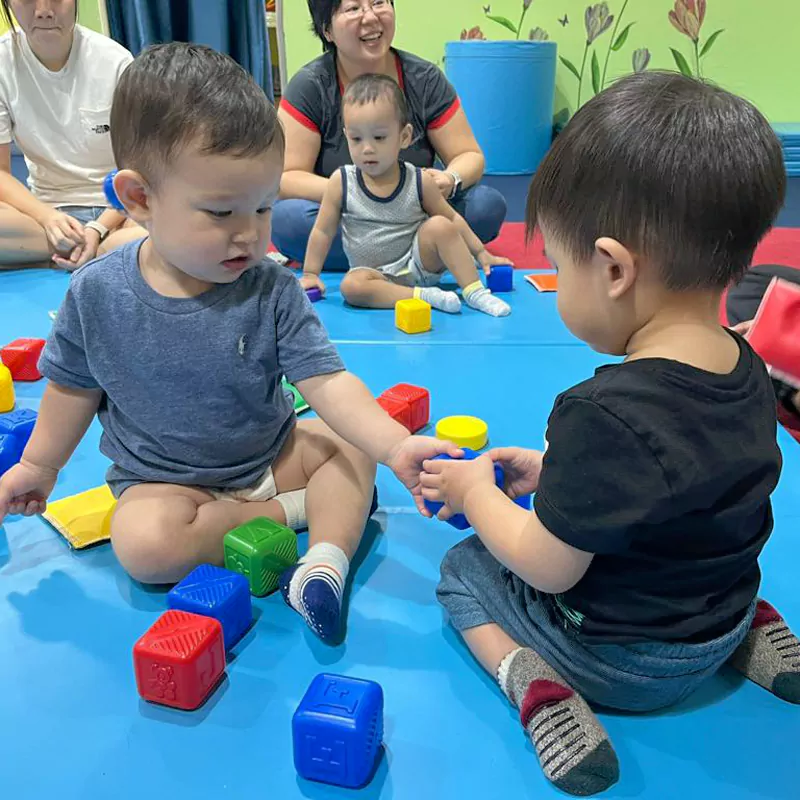
A simple act of sharing holds extraordinary potential. A willingness to part with a snack or a cherished toy can work wonders in fostering friendships. One study published in “Psychological Science” has revealed that children as young as two possess an innate inclination to share, particularly when resources are abundant. However, as they enter the age of three and up to six years, selfishness overcomes the desire to share.
Children hesitate and begin to realize that sharing comes at a cost. Your child may grapple with the idea of relinquishing half of her delicious cookie. Yet, she may readily share a toy that no longer holds her interest.
Around the age of seven or eight, your child starts to develop an innate sense of fairness and again begins to be more inclined to share. Interestingly, sharing not only benefits others but also serves as a powerful source of self-esteem for the sharer.
You can teach your child the art of sharing and help her unlock a treasure trove of love and watch the altruistic nature begin to unfold within her. But how do you cultivate this vital social skill without resorting to force? The key lies in observation and encouragement. Seize opportunities to highlight moments of sharing when they arise and shower your child with praise when she exhibits this major virtue.
Guide your child gently, making her become aware of the positive impact her actions will have on others. In moments like these, whisper words of affirmation, and say things such as, “Glad you chose to share your snack with your sister. She is so happy. It’s wonderful thing to do. Keep it up!”
Learning to work with others

Cooperation is the cornerstone of learning to work together and attain a common goal. From the playground to the classroom, the ability to cooperate seamlessly plays a major role in shaping your child’s interactions.
By the age of three and a half, your child will be capable of collaborating with her peers, embarking on tasks that range from building tall structures to engaging in interactive games that require a collective effort. Embedded within such cooperative activities is the invaluable lesson of being a willing participant. Your child will discover that celebrating someone else’s success does not diminish her own sense of achievement.
Within the realm of cooperation, every child realises that they have a unique role to play. Some gravitate naturally toward leadership positions, while others find solace in following instructions. Through cooperation, a child gains deeper insights into her own capabilities and how she can thrive within a group.
Empower your child with the tools to navigate the intricacies of human interaction, forging lasting connections and resilient bonds along the way. Remember, it’s not just about learning to work together, it’s about igniting a flame within your child, a flame that illuminates her path to a harmonious and fulfilling life.
Learning to listen well
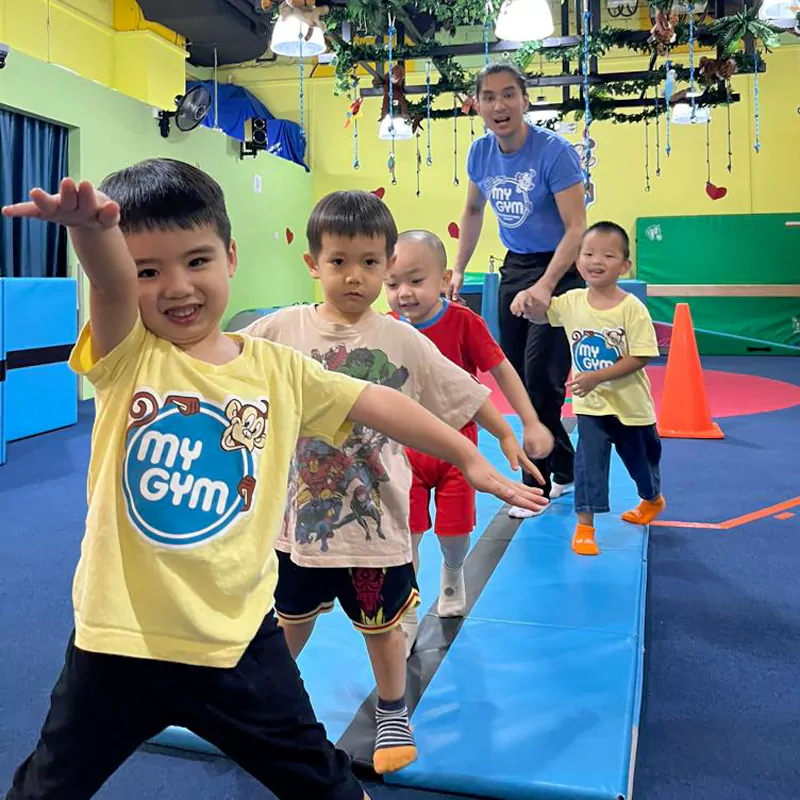
Learning to listen goes beyond simply being quiet; it involves truly absorbing what someone else is saying. This is a crucial aspect of effective communication and plays a significant role in a child’s learning process at school. As your child progresses academically, the ability to absorb information, take notes, and contemplate what is being said becomes even more important. By providing ample opportunities for your child to practice listening can help strengthen this skill.
Listening is also vital for developing empathy. Without listening and understanding what others are saying, a child cannot exhibit empathy, learn compassion or provide support. It is crucial for your child to grow up knowing how to listen not only to their caregivers, superiors, and friends but also to practice this skill in the digital age.
It is critical to emphasize to your children from an early age that smartphones and other devices should not be used when speaking and interacting with others. This is not only distracting but also a rude thing to do.
An effective way to practice listening, is when you are reading a book to your child. Pause often while you read and ask your child to share what she remembers about the story so far. Fill in any gaps she might have missed and encourage her to continue listening as you proceed. While you are at it, you can also teach your child not to interrupt but learn to wait for you to stop reading and then ask.
Foster the ability to follow directions
A child who has difficulty following directions often faces consequences, such as having to redo her homework or having to face disciplinary action for misbehaviour. This issue of being unable to take directions can become a significant problem as a child grows.
Whether you are instructing your children to tidy their rooms or guiding them in improving their basketball skills, it is crucial to be able to comprehend and carry out instructions. To provide effective directions and avoid common errors, you may follow these strategies:
- Give young child one direction at a time. Instead of saying, “Pick up your shoes, put your books away, and wash your hands,” wait until they have picked up their shoes before issuing the next instruction.
- Avoid phrasing your directions as questions. Asking, “Will you please pick up your toys now?” implies that your child has the option to refuse or do it later. After giving directions, ask your child to repeat what you told her to do, for instance, by asking, “What are you supposed to do now?” and patiently wait for her to explain what she heard you say to her.
- Keep in mind that making mistakes is normal. Your child may easily get distracted, act impulsively, or forget what she is supposed to do. Each mistake should be seen as an opportunity to help improve the quality of her listening skills.
- Practice and reinforce the ability of your child to follow directions. You can praise her when she listens successfully. Respond by saying things like, “Thank you for promptly turning off the TV when I asked you to.” For a child who struggles with following directions, provide her with opportunities to practice following simple commands. For example, you can say, “Please pass the salt to me,” and then immediately praise her for successfully following the direction.
Good social skills build lifelong friendships
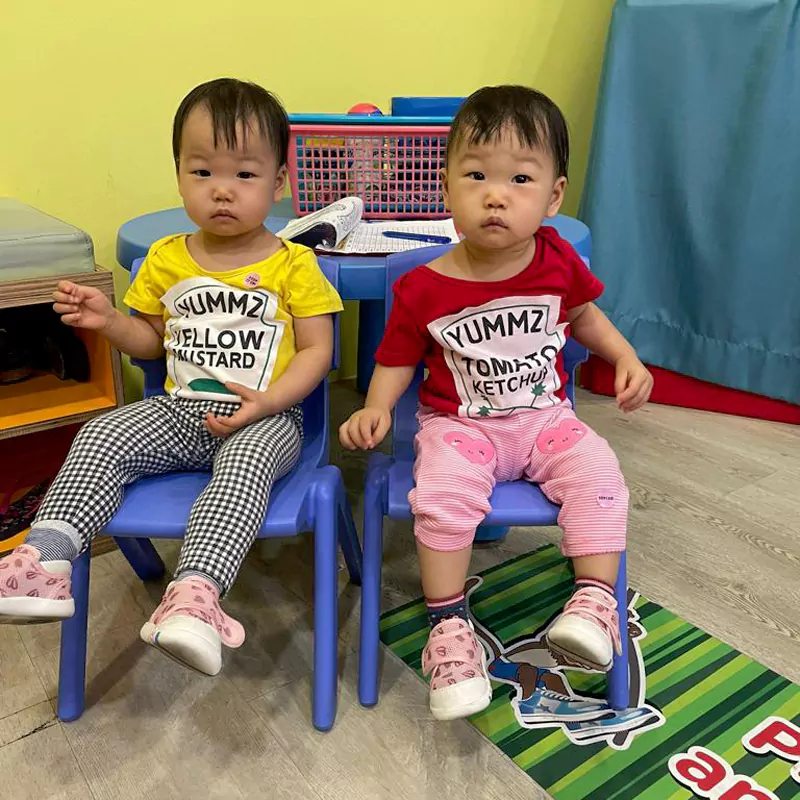
Healthy relationships inherently promote positivity, especially for children and young people. They should always feel respected, valued, supported, and encouraged, with the freedom to express themselves and make choices without being controlled, coerced, or manipulated.
The benefits of healthy relationships extend beyond emotional well-being. They also contribute to reduced stress levels, provide a greater sense of purpose in life, and foster social development.
Healthy relationship encompasses several vital characteristics:
Mutual respect: The essence of a healthy relationship lies in valuing each other as you are, without seeking to change one another. This entails respecting each other’s emotional, digital, and other personal boundaries.
Trust: In healthy relationships, trust is not something that needs constant validation. You wholeheartedly believe what your partner says, and there is no need to worry about their actions when you’re not present.
Equality: Both individuals should have an equal say in decision-making, and neither should possess more control or power over the other. Holding each other to the same standards fosters a sense of balance and fairness.
Honesty: A healthy relationship thrives on honesty. You should feel comfortable being open and sincere with your partner, without fear of negative consequences. However, it’s important to note that not everything needs to be disclosed—some matters can remain private.
About My Gym
My Gym involves children in dynamic games, physical activity and movement that help a child improve her gross and fine motor skills. It has specially designed programs that lay a firm foundation for personal, academic and future growth by involving your child in age-appropriate structured and unstructured physical activities and developing thinking and problem-solving skills.
Customizing its enrichment programs and workshops makes it easier for children to acquire intellectual skills, navigate complex social situations, and nurture emotional development.
Please visit any of our centres to learn more about how My Gym supports “whole-child development.” Choose a day when you will be relatively free and come over with your child in tow. Your child could be an infant (as young as 6 months), a toddler or a preschooler, age is not a bar. Discover how a child can learn to thrive in a fast-changing world.
Please note: My Gym classrooms are thoroughly sanitized every day — the tables, the chairs, the children’s activity stations and everything else the child might touch is made safe and clean. Please wear a mask, wash your hands frequently, and practice social distancing.



